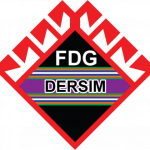Being a “DEVA” for Dersim

There are two major historicist poles in the country that discuss the “Dersim question” on the main axis; Official Turkish Historiography and Kurdish Historiography
These two poles have a lot of voter support as well as a lot of media support. In fact, the main agenda continues every year in a course that is usually designed in line with the ideology of the two poles and is caught in a vicious circle.
The result? No matter what you have, it will be multiplied by zero (0) and there is no progress in the situation despite all the years of discussion.
And at this point, even “Yıldız Tilbe” can set the agenda in a timely manner. In the country, people are divided into “Yıldız Tilbe supporters” and “Yıldız Tilbe opposites” over the “Dersim” issue.
So what are the focal points of the topic, the victims?
…
Today, the thousands of victims who have sent the petitions I have prepared to the Parliamentary Committee on Petitions have not been answered by Parliament. Those who read the book “Drifting Lesson, 1937-1938 and even 1939” by journalist and writer Yalçın Doğan understand my approach to this topic much better, because a lawyer who is not based on magazines is far from populism and focuses on results.
Investigations of the Public Prosecutor’s Office in the case of the tomb of Seyit Rıza
The case of the opening of the Seke Surah mass grave.
Hüseyin Akgün’s compensation lawsuit against Devlet Bahçeli
Criminal case against Turkish left-wing magazine
The case for the opening of the mass grave in which Hüseyin Akgün’s family members were murdered…
All these processes are in our archive as a result of my struggle against law, democracy and history in my professional life, which has concluded ten years. In Prof. Dr. Şükrü Aslan’s book “Hozat”, these questions were discussed legally in an article I wrote.
In all these legal processes, I saw sociologically that there were a thousand and one groups and a thousand voices acting on behalf of Dersim. The owners of these voices did not want to listen to each other. They were intolerant and impulsive towards each other. A social situation divided into a thousand and one factions around a pain to laugh at was unfortunately before our eyes.
If the law only benefits one ideology, that was important for a thousand and one voices. For this reason, it was not the “legal battle” for the media that fed on populism, but what the politicians said that turned the issue into an Arab hair. And as a result, at this point, we observe the Dersim question, the chaos created by groups that cannot be treated above politics, that are not based on universal laws, and that are sometimes nationalistic, sometimes tribal, and sometimes oppressive, and that show the stories of the failure of the press as a success and listen to its cacophony.
And now we read and watch Ali Babacan’s veiled “Dersim” messages from the press. I don’t know if the Deva Party will be a panacea for Dersim. Maybe I laugh at my heart that “Yıldız Tilbe will start politics in the Deva Party and the climate will become Yıldız Tilbe’s soldiers”.
I remember for a moment the lines of the poem “Smile” by the poet Kemal Burkay, whose poetry I admired.
“… The whole city resents
me I don’t even have a cat that you understand
The climate is changing, it is becoming the Mediterranean, smile.”
Yes, let’s smile anyway and not leave our poet alone in his verses. And what is the “Deva” of Dersim, let’s try to look for it. From the main media to the local media, all interlocutors… Without turning it into Arab hair, without imprisoning it in ideology, without populism…”
